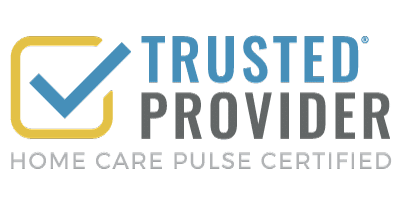
Ways Seniors Can Enjoy Life
Without Spending a Fortune
If you are one of the
76 million Baby Boomers in the United States, you’ve seen a lot of changes in our country. You’ve also learned a lot about how to navigate your finances in good times and bad. However, it’s easy to stay in “recession preparation” mode as a way to ensure you have resources if the economy tanks tomorrow. While being prudent with your money is responsible, you might be preventing yourself from enjoying today.
Small Budget, Big Life
It’s a sad misconception that money equals happiness —
it doesn’t . There are plenty of ways to budget even a limited income so that you can save for the future, pay your bills each month, and have a little bit left over to invest in your health and happiness.
One idea is to consider downsizing to a smaller home. This is an emotional process, especially if you lived in the same place for many years, but it’s also one that can give you the freedom to pursue a hobby, travel, or help your grandchildren with their college education. When you sell your large family home, you might have enough money to purchase a smaller property outright. If it is necessary to take out a new mortgage, keep in mind that interest rates are relatively low, and if you are a veteran, you might qualify for a VA home loan. PennyMac USA explains that the VA loan program can help you buy without having to put down a large down payment.
More than saving money, moving into a smaller house can give you back something even more precious: time. You’ll have less cleaning and fewer home maintenance tasks to complete each week. This can eliminate stress and physical strain leaving you refreshed – and available – to do something that truly makes you happy.
Looking Ahead
When your main concern is protecting your finances so you don’t burden your loved ones later on, you can invest in life insurance and eliminate that worry. Chances are, you won’t have young children to provide for so a less expensive insurance plan, such as burial insurance, is a good option. Lincoln Heritage’s sample insurance rates illustrate just how
affordable final expenses insurance can be. If you’re 65, for example, and in relatively good health, you can expect to pay less than $60 per month for a $10,000 death benefit. This is money your loved ones can use for your funeral, to pay off your credit cards, or settle outstanding bills without dipping into their own savings.
Ways to Enjoy Life Without Draining Your Accounts
Once you figure out how much money to devote to personal fulfillment, it’s time to start planning. First, think about what you want to do.
Here are a few budget-friendly ideas based on your interests:
- Travel . You don’t have to wait until peak season to see the sites. TripSavvy.com lists the cheapest months to visit everywhere from New York to the Netherlands.
- Art and history . Forget paying expenses entry fees, there are free museums scattered throughout the country. Even the famous Field Museum in Chicago offers complimentary admission multiple times during the year.
- Pets . That $1,500 designer dog might be cute, but you can get just as much love from a shelter pet. Further, some dogs are simply easier on the budget than others.
- Socializing . Spending time with family and friends is one of the least expensive but most fulfilling ways to enjoy your retirement. Visit your local senior center, plan a picnic at the park, or schedule a weekly card game for frugal fun for everyone.
You deserve to enjoy your retirement. Even if life has left you with little in the way of financial resources, you can still make changes that will accommodate your aspirations. Start by looking at your housing costs and then plan for the future. You don’t have to have a lot left over to get the most out of life if you’re willing to be creative and compromise.

Love and Long Distance: Taking Care of an Aging Parent from Far Away
It’s an unfortunate reality for many of us, but it is sometimes necessary to live away from our aging parents. If they refuse to move and you can’t uproot your family, there are still ways to help manage your loved one’s well-being. The following tips can help.
Understanding Their Benefits
Medicare changes regularly, and the services that were covered last year may not be covered this year. Stay up to date about adjustments to their health care plan to ensure they have the best coverage available. Changes to Medicare can be found online along with information on Medicare Advantage plans, premiums, and state-specific supplements. Your senior family member may benefit from a review of their coverage, and by adding a Medicare Advantage plan, if their health needs change or if they take multiple prescription medications.
Care Made Convenient
The vast majority of seniors — and everyone else — would rather not spend half the day at the doctor’s office. Video consultations are one option and are now offered by many doctors offices as well as pharmacies and walk-in clinics . These services are not for everyone, however, and are only viable for common issues, such as a cold, nutrition counseling, or skin irritation. You can set these appointments up yourself as long as your senior has an internet connection and webcam. Oklahoma’s KSOR News 4 recently reviewed the best video chatting devices for seniors . These plug-and-play screens not only give your senior easy access to their healthcare provider but also make it simple for you to chat face-to-face with them any time.
Seniors who require more personalized attention should be seen in-office. If your elderly parent or grandparent does not drive, or if it is not safe for them to do so, there are many rideshare services that can help get them back and forth to the doctor. In 2016, Lyft forged a partnership with Aging2.0 to bring transportation services to elderly clients. Seniors in many locations throughout the country now have the option to take advantage of telephone-based ride scheduling. Contact Lyft directly to find out if the service is available in your loved one’s area and provide that number to them.
Healthy Nutrition Delivered
One major hurdle for seniors, especially those who don’t drive, is getting to the grocery store on a regular basis. Grocery delivery services solve that problem. As an added benefit, you can order their food online so you will always know that nutritional items are within reach. Mom blog Lucie’s List offers a rundown of some of the best grocery delivery services . The blog may be geared toward new moms, but the advice is just as applicable for the elderly. Other options include meal kit delivery services such as Hello Fresh and Blue Apron. These companies do all of the planning and provide individually portioned meals along with cooking instructions. They are an excellent option for seniors who enjoy time in the kitchen and like to try new things.
Help On-Hand
When you live far away, the hardest part of caring for an aging loved one is not being able to be hands-on. While it may be hard to consider, bringing someone in to provide this type of care on your behalf can ease the burden on your mind. Assistance with personal care activities, bathing, household chores, and meal preparation are available. The decision to hire through an agency or an individual is a personal one. Using an agency likely means they have been vetted and may be certified in CPR or first aid. Outsourcing care to an individual may be more cost-effective. If you decide to hire a caregiver, have a video-monitored security device in place, with cameras set up throughout the home. This will help you keep track of your senior when they are alone, and make sure they are not being taken advantage of by their caregiver.
Being so far away from someone you love, especially when they are at their most vulnerable, is a helpless feeling. Innovations in technology can help you take responsibility for your aging parent or grandparent without sacrificing your own family’s home and lifestyle.

What We Can Do to Prepare for the Financial Impact of a Dementia Diagnosis
No one wants to think about the possibility of dementia, yet we all need to prepare for it. It may be difficult to contemplate, but there are payment options available to you beyond Medicare and Medicaid. Here are some ways that we can cover the costs often associated with Alzheimer's
Paying Out of Pocket
It's no secret that care, especially for long-term conditions like Alzheimer's disease, are expensive. Every year, Americans use up vast sums of money on Alzheimer's care alone. In fact, Americans collectively spend $277 billion , with $60 billion of that coming out-of-pocket. At an individual level, based on figures from 2015, we pay $57,407.60 per year , and that number has only grown larger over time. Paying for these costs on our own can be crippling, and asking our family members to help cover the expense of nursing home care is equally devastating. Yes, we could rely on our savings, but this is not always sustainable, and such resources are finite. This is why we need to be financially prepared for long-term care should the worst happen.
Medicare and Medicaid Coverage
Medicare is a service we can receive for no charge. It coversroughly 80 percent of hospital costs concerning dementia, but that still leaves us with the other 20 percent. In fact, Medicare will only cover in-home supportif the patient is physically unable to leave their home or cannot speak. Medicaid acts as a supplement to the holes in Medicare coverage, allowing you to receive in-home care before things become desperate. It also provides transportation, ensuring appointments will not be missed even when your family and friends are busy. However, you need to prove you are experiencing acute difficulty with everyday tasks to be eligible for support. Thankfully, there are options we can pursue earlier.
Finding Affordable Care
Finding alternatives to or even a supplement for Medicaid can often seem very challenging. Yet, there are resources available to you and your loved ones to ease the process. In fact, there are websitesdesigned to compare pricing in your town and state to help you identify the right care for your needs and budget. Veterans have extra options available to them for nursing home care, so if you or a loved one have served in the military, contact the VA to learn more. If you need further financial assistance , you could contact your local Elder Care chapter, which offers support to those who are low-income and in need of in-home care. Should you not qualify, don't panic, as there are other viable avenues to explore.
Alternative Insurance
If possible, look at other forms of insurance as a pre-emptive measure, such as long-term care insurance, and even burial insurance. LTC, or long-term care, insurance has to be purchased before a diagnosis has been made, but can be a lifesaver when it comes to the financial strain of nursing home care. Burial insurance, meanwhile, is good for everyone to consider. It not only provides the funds for a funeral, but it may also cover debts and personal loans. This offers our loved ones some protection from monetary burdens during what will be a difficult time.
As with insurance, you must know what you need to be covered before selecting a policy. This includes the type of service preferred and how much you will want to be left for loved ones to pay down any outstanding debts.
We all hope dementia and Alzheimer’s won't happen to us, but need to be ready if it does. Luckily, there are choices available to us when it comes to treatment, care, and paying off lingering debts. With a bit of help, we can look after our families, even after we're gone.







